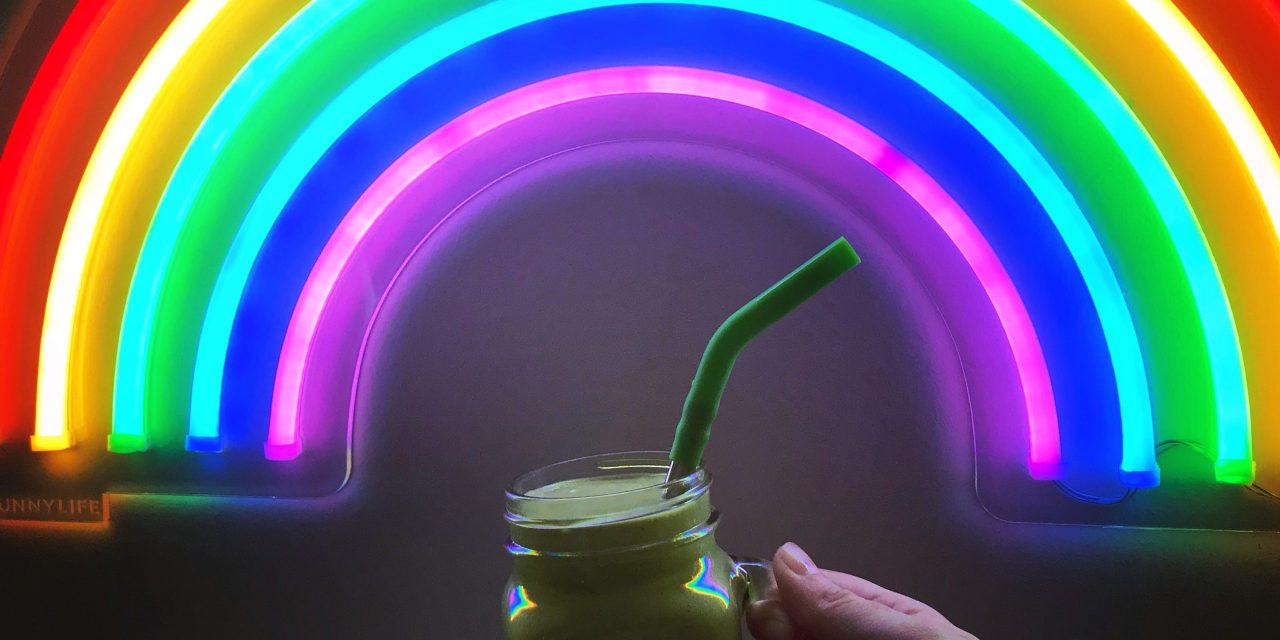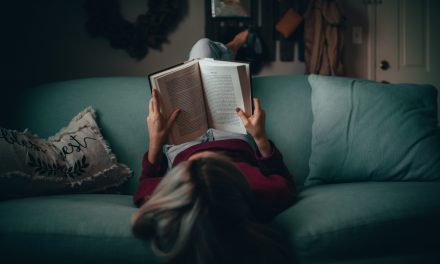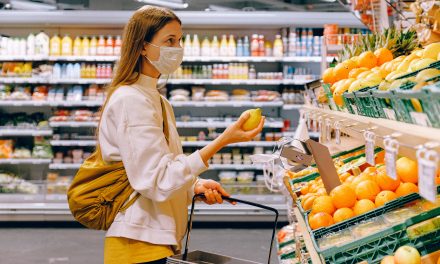For World Oceans Day on 8 June, we spoke to Emma, a resident from East Hoathly who is on a mission to reduce the amount of plastic her family use.
While most of our rubbish waste in East Sussex is taken to Newhaven to be burnt and turned into energy, much of our plastic pollution comes from plastic blowing into the sea. It is estimated that a staggering eight to 12.7 million tonnes of plastic enters the oceans every year.
One mum’s story of going plastic free
Emma, 34, is a reformed plastic addict. A mum of two, we spoke to her to find out how she has made simple swaps to reduce her plastic use.
Emma said: “I love the saying ‘we don’t need a handful of people doing zero waste perfectly. We need millions of people doing it imperfectly’. I am by no means perfect, but once you start you see how easy it is and you realise what a massive change it makes.”
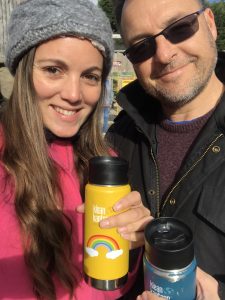
Emma and her husband Rick have reduced the amount of plastic that they use at home.
Reusable nappies
Currently in the UK about eight million disposable nappies are thrown away each day and each take hundreds of years to degrade. But how practical are reusable nappies? Emma said: “I have two young children, and deciding to use cloth nappies and wipes was my first step towards vastly reducing my single use plastic usage.
“I looked at how many nappies the average child uses from birth to potty, how many chemicals are found in nappies and wipes, and how long they take to decompose, and it shocked me.
Emma soon found that there was ample information online about alternatives like cloth nappies. “There are so many online communities who are passionate about this, so it didn’t take me long to go from feeling confused to knowing exactly what I needed. My second boy is now nearly out of nappies, and I can’t believe the saving I have made financially, let alone the environmental impact.”
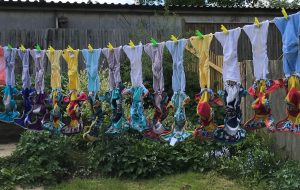
Reusable nappies drying on Emma’s washing line in the garden.
Reusable alternatives for the home
Incredibly, 53% of us have cut back on our plastic use over the last year. This has been coined ‘the Attenborough effect’ and Emma said starting with plastic bottles in her home was a logical starting point.
“The next obvious step for me was looking around the bathroom and kitchen, and noticing how many plastic bottles I had! So once things ran out I started buying reusable alternatives.
“This takes up less space, is better for the environment and can cost less in the long run. In our family, we all have stainless steel bottles. I make name labels and decals for them (which make a lovely personalised gift) and the boys love taking them to school and nursery.
“A family day out saves at least five bottles from ending up in landfill or the sea – plus they look so much nicer! Most of my friends have followed suit.”
Emma’s top tip for making reusable swaps to your home products? It’s all in your shopping habits: “There are very easy quick fixes like getting milk in glass bottles from the milkman, getting a veg box delivered from a local farm shop (which also helps your local industries). Plastic bags can be replaced with canvas alternatives which take up next to no space in your bag and look much nicer! Just remember to keep some in your car.”
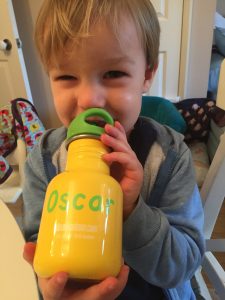
Oscar with his reusable water bottle.
Check out our full list of products that can be swapped for reusable ones here: How to ban single-use plastics from your home.
While most of our rubbish waste in East Sussex is taken to Newhaven to be burnt and turned into energy, much of our plastic pollution comes from plastic blowing into the sea. If you visit a beach or river, please make sure you take any rubbish home with you and recycle it.
Of course, anything that can’t be swapped to a reusable or sustainable product should be recycled, where possible. You can check with your local district or borough council on what you can recycle.
